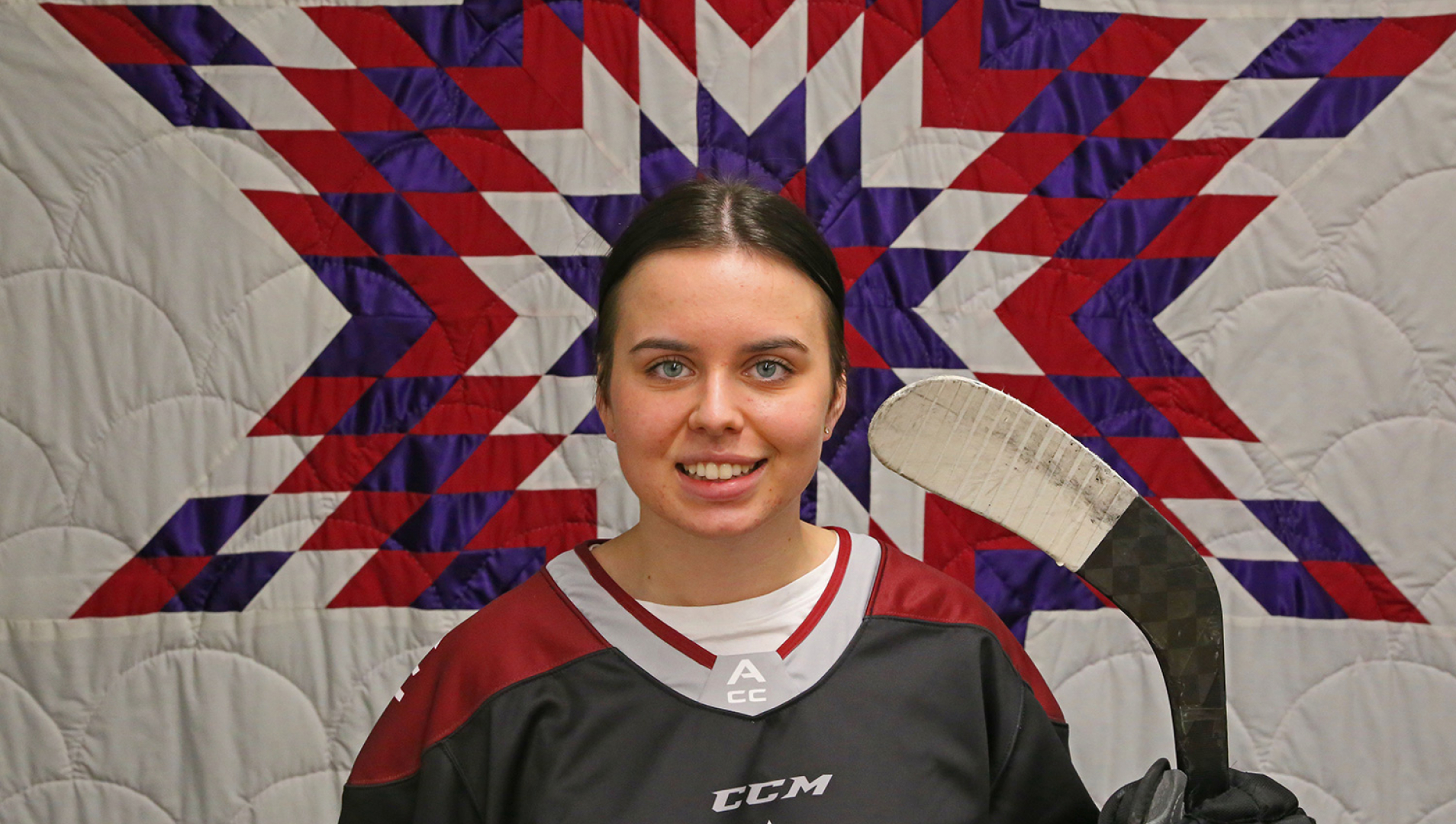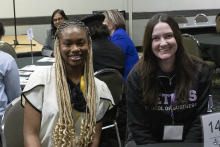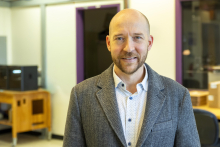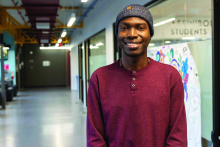Athletics helping some with transition to college environment
March 9, 2022
The shift from high school to post-secondary is a big step for anyone and can oftentimes carry an adjustment period. Outreach programs at Assiniboine Community College strive to bridge this divide for Indigenous students, including programs offered through the cultural centre and by visiting elders.
Assiniboine’s student-athletes have found an additional source of inclusion.
“We don’t really focus on where anyone comes from, it doesn’t really matter, we all just treat everyone the same,” said 18-year-old Jenna McLennan, who plays defence for the Assiniboine Cougars women’s hockey team.
The Public Safety student, who is still early in her journey when it comes to learning about her Métis roots in Manitoba, said that she’s enthused to see there are cultural supports on campus which she intends to use to discover more.
Originally from Winnipeg, McLennan picked Brandon in part because it’s far enough away from home for her to branch out on her own, but also close enough that she’s able to visit family whenever she wants to.
Plus, she said the fact Assiniboine has a women’s college hockey team “was a big bonus.”
“I wouldn’t say it’s too different an environment as Winnipeg,” she said of Brandon, adding that the main difference is that everything is closer together, which she added can be a major positive.
McLennan’s journey to Brandon wasn’t as drastic a change as some student athletes experienced. Women’s volleyball left side, Alayna Ningeongen, travelled all the way from Rankin Inlet, Nunavut.
Although the province’s capital city would have been slightly closer to home— it’s a two-hour plane ride to Rankin Inlet— she chose Brandon because it’s a smaller community.
“I come from a small place,” the 23-year-old said, adding that although Brandon’s larger than her home community, “it feels more like home” than Winnipeg would.
Also replicating her home community feel is the small, tight-knit community that surrounds the volleyball team.
As a child, Ningeongen was originally interested in soccer, but shifted her focus to volleyball alongside her hometown friends, participating in the Arctic Winter Games in both 2014 and 2016.
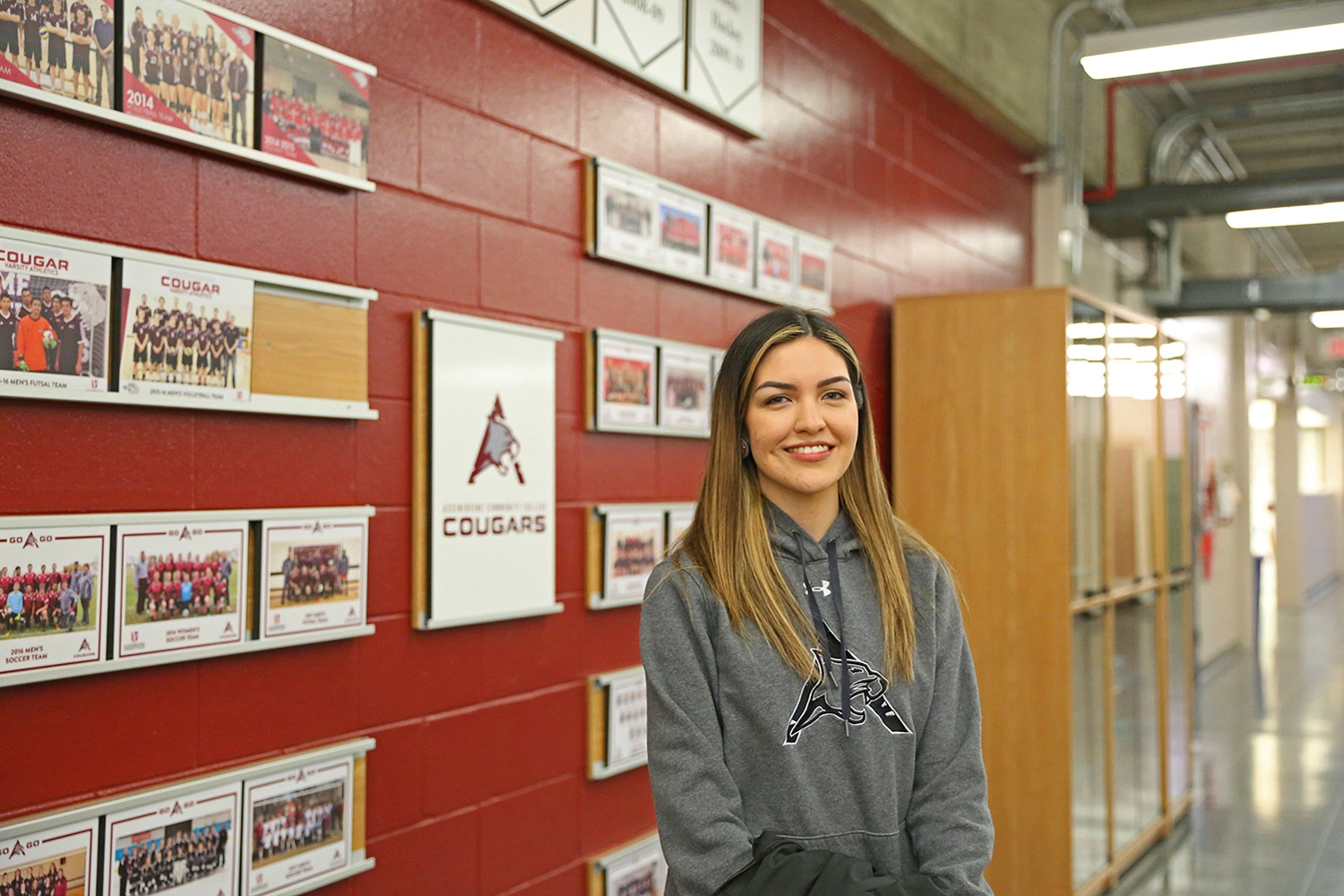
Ningeongen initially studied Recreation and Sport Management at Brandon University, during which she played in a highly competitive recreational volleyball league. She decided to get back into the thick of competitive sport when she shifted to Assiniboine earlier this year to study Advanced Human Resource Management.
Joining the Cougars has been “an amazing experience,” she said, adding that they spend much of their time together and have established a close-knit group of women.
There isn’t much of an Inuk community in Brandon, but she said her teammates have always made her feel at home and that she’s able to reconnect with her culture during the winter and summer breaks she spends back home.
Among those student-athletes with both the longest and shortest paths to Assiniboine is Joshua Budach, who was born in Germany, relocated to Canada when he was five and enrolled in the college’s Civil Technician program earlier this year.
Going to college in his hometown of Brandon allows him to remain at home, which he said is helping him ease into independence more seamlessly than those who abruptly relocate as soon as they graduate from high school.
The 18-year-old Cougars men’s team volleyball middle established an interest for technology while attending Crocus Plains Regional Secondary School, where he learned the ins and outs of AutoCAD— a commercial computer-aided design and drafting software application.
Originally a soccer fanatic, Budach found volleyball and volleyball found him following a growth spirt in high school.
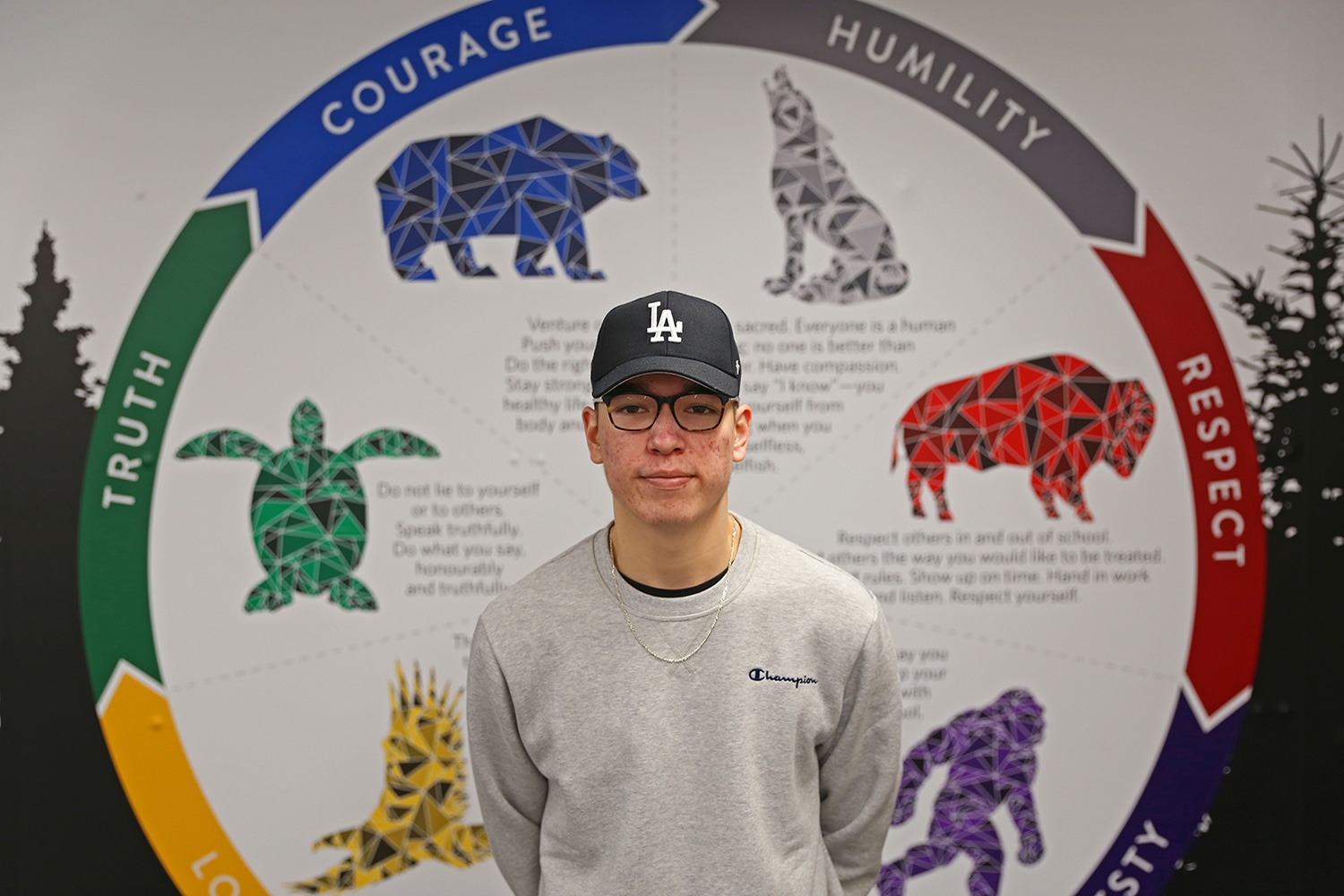
“I have a love and passion for it. And I really liked the team bonding around it and coming together within the game, so having each other’s backs and knowing each other’s strengths and weaknesses so we can bond and become stronger,” he said.
His German father met his Dakota mother, from Canupawakpa Dakota Nation, when stationed at Canadian Forces Base Shilo. Budach has been striving to connect with the Indigenous side of his family roots recently.
On this front, although he gets a lot of the cultural teachings he needs through his extended family, he said it’s been refreshing to see Assiniboine strive to engage culturally with the 19 per cent of the college’s student population that identifies as First Nations, Metis or Inuit.
“There’s a whole lot of traditional things that take place here, like bead work and sage burning—that’s a big part of Indigenous culture,” he said, adding that small things such as the teepees on campus make it feel more welcoming.
Adding to this inclusionary environment are his teammates and coaching staff, who he said focus on the bonds formed over their shared experiences centered on the sport.
All three student-athletes shared the sentiment, that sport has helped them feel comfortable and eased them into their new environments.
“When I was moving here, I didn’t really know anyone, so it was kind of nerve-wracking,” McLennan said, “But my teammates helped with the nerves so it’s been a great experience.”

